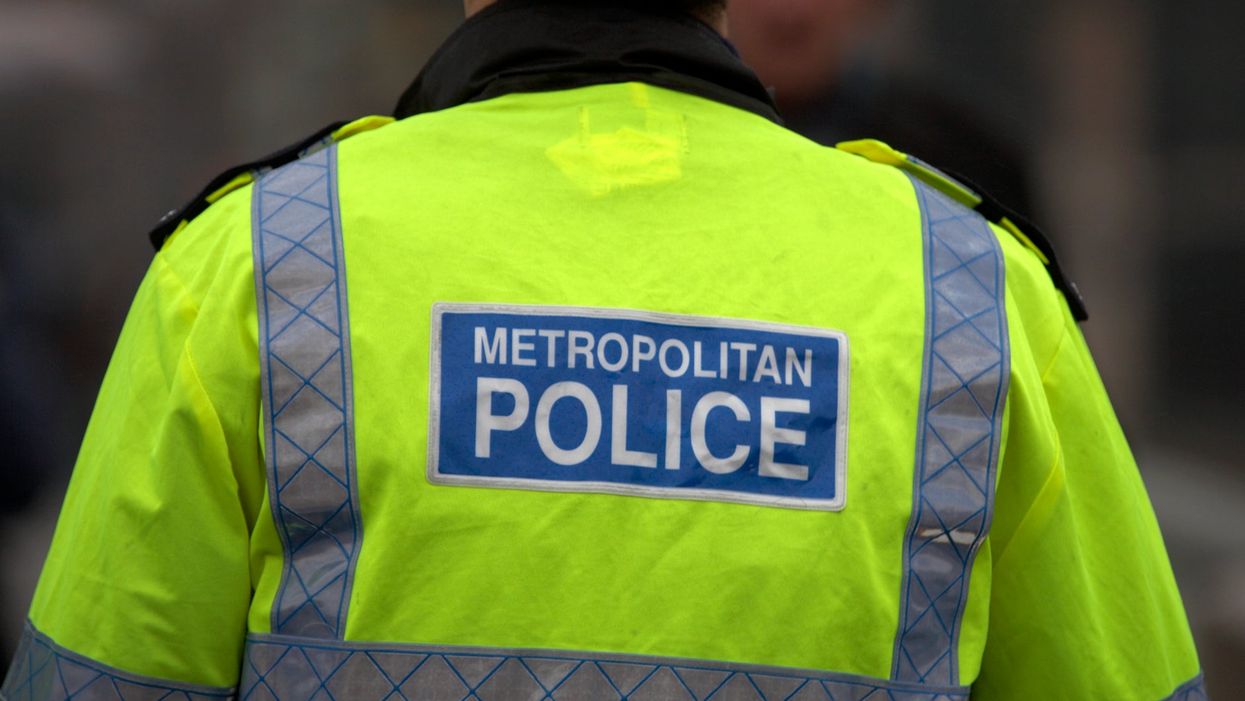News
Kate Plummer
Oct 01, 2021
Metropolitan Police advice that women should “run away” if they feel unsafe in the presence of a lone police officer has been met with a huge backlash, with people saying it puts the onus on women to keep themselves safe.
A spokesperson from the force said it is unusual for a single plainclothes police officer to engage with Londoners and that people should attempt to verify their “identity and intentions” if they do so.
But: “If after all of that you feel in real and imminent danger and you do not believe the officer is who they say they are, for whatever reason, then I would say you must seek assistance – shouting out to a passer-by, running into a house, knocking on a door, waving a bus down or if you are in the position to do so calling 999,” they said.
It comes after Wayne Couzens was sentenced to a whole life in prison for the kidnap, rape and murder of Sarah Everard in March 2020. It is worth pointing out that Couzens, a serving police officer, was carrying identification when he stopped the marketing executive, falsely claimed he was arresting Everard under Covid lockdown laws, and did so in the presence of witnesses.
So, reacting to the advice, women thought running away from the police would not work in practice and pointed out that having to call the police on the police is bleakly ironic:
This is great advice. It's a well-known fact that buses always drive past every time an offence takes place, and bu… https://t.co/GvAeEkNTHl— Chris Scullion (@Chris Scullion) 1633074963
Why are they talking about 'waving down buses' instead of announcing a tireless, roots and stem investigation into… https://t.co/idEV7Fi8B9— Sam Parker (@Sam Parker) 1633101133
A belated good morning, Twitter. Tea and I can’t even. But I’ll try. -Buses don’t stop when you wave. That’s taxis… https://t.co/wrERv9GULP— Stephanie Butland (@Stephanie Butland) 1633078306
If Sarah Everard had phoned 999 to check up on Wayne Couzens, as suggested, she’d have been assured he was a servin… https://t.co/5kOOC8IDtD— Jeanie Finlay (@Jeanie Finlay) 1633077029
The police are telling us to run away from the police and then call the police. We are nowhere near as ‘developed’… https://t.co/DUXEJroZUI— jack rem x (@jack rem x) 1633063995
WTAF is this? Police telling us to act in a way that they could then say is illegal (poss obstruction) or shoot us… https://t.co/dBKXmFaCj4— Maggie Chapman MSP (@Maggie Chapman MSP) 1633067272
Man said call the police on the police 🤯 https://t.co/SckhI76Mn8— GUVNA B (@GUVNA B) 1633076683
@headgrassman @LBC Met police: if you are being arrested just run away— Musty Springfield (@Musty Springfield) 1633068585
@LBC Yeah, sure. Run away from the cops. They'll definitely just let you do that. Nothing bad could happen there— Test your might (@Test your might) 1633031146
@LBC It would be hard to run from a police officer, especially if frightened. Many would freeze.— Elaine - #freeNazanin #FreeAnousheh (@Elaine - #freeNazanin #FreeAnousheh) 1633034042
People also said the onus should be on the police, not women, to ensure violent criminals do not make their way into their ranks:
A spokeswoman for Solace Women’s Aid said: “Any man intent on causing serious harm or murder is unlikely to stop in their tracks if asked some probing questions, even more so a police officer who is in a position of power.
“Instead of deflecting responsibility on to women and creating guidelines to moderate their behaviour to keep themselves safe, the police need to say what they are going to do to address systemic misogyny in their own ranks and to rebuild trust with women.”
Refuge chief executive Ruth Davison said: “Time and again, the Metropolitan Police have responded to incidents of gender-based violence by telling women to change their behaviour.
“Time and again, the responsibility is placed on women to protect themselves.
“This is simply not good enough. Police forces across the country must be prepared for a fundamental shift and overhaul in their attitudes towards women and root out the misogyny that is at the heart of these failings.
“Refuge keenly awaits the Met’s strategy for tackling violence against women and girls. Women deserve better.”
This plays right into the vile culture of victim-shaming we so often see when women are assaulted. It's not our jo… https://t.co/GZgnXNmvk8— Bell Ribeiro-Addy MP (@Bell Ribeiro-Addy MP) 1633093222
Feel like the onus should be on the police to make women feel safe, not on their own ability to fucking peg it https://t.co/UP9vI9MtfG— James Felton (@James Felton) 1633037924
Bloody hell! The Met Police must be mad. Disgusting. The list appears to be getting longer on what women must do to… https://t.co/F3GnBCsoy2— Dr Shola Mos-Shogbamimu (@Dr Shola Mos-Shogbamimu) 1633073319
@BBCNews Seriously, please can we hear more about rooting out rogue police officers across the UK - and less about… https://t.co/nD2a5n3Nng— Peter Harvey (@Peter Harvey) 1633074862
And questioned whether getting on a bus was as safe as they implied:
This is so grim. If someone believe they are in 'real and imminent danger' - **from a police officer** they've to f… https://t.co/mGWtBI8FRM— Ruth Davidson (@Ruth Davidson) 1633077989
We've now reached the point where the public are being advised to flag down buses to protect themselves from police… https://t.co/pC9GrokNRQ— (((Dan Hodges))) (@(((Dan Hodges)))) 1633076736
@stephenkb Apparently bus drivers should stop if someone is waving them down in the street away from a bus stop, ju… https://t.co/yskpaHhp0t— Wes Streeting MP (@Wes Streeting MP) 1633083090
Yeah that notorious women’s safe space, a bus https://t.co/ofaPjmA7AL— Sian Harries (@Sian Harries) 1633082663
Meanwhile, a lawyer has told LBC that running away from a police officer “risks getting people into trouble”.
Solicitor Jon Heath from Levins Law explained that it is an offence under section 89 of the Police Act 1996 to wilfully obstruct a police officer in the execution of their duty.
“Case law confirms that a police officer who wishes to ask someone questions is executing their lawful duties, and hence that running away from an officer can amount to obstruction,” he said.
“If a woman were to run away through genuine fear that she was about to be abducted, one would hope that the police and the CPS would recognise that it would not be in the public interest to prosecute, but that cannot be guaranteed.
“Moreover, running away is not very practical advice — your average citizen will probably be caught, and possibly injured in the process.”
If “you do find yourself in an interaction with a sole police officer and you are on your own, it is entirely reasonable for you to seek further reassurance of that officer’s identity and intentions,” the force said.
And people pointed out that there have been times in which people have challenged the police, only for them to be shot at or arrested:
@LBC The family of Jean Charles de Menezes may take issue with advice to 'run away if you don't feel safe' coming f… https://t.co/PYC86mgsQB— KevInCornwall (@KevInCornwall) 1633036888
Can anyone else see a problem with taking this course of action? Especially if you are e.g. Black? https://t.co/D867KAm5H7— MiMi Aye (@MiMi Aye) 1633077011
While others, including senior politicians, questioned if the Metropolitan Police were taking the issue of violence against women seriously enough:
It is right to ask the question whether the police can be relied on to protect women. And it's right to expect a pr… https://t.co/NPo4aZwQIb— Jo Maugham (@Jo Maugham) 1633077806
Enough is enough. We need to treat violence against women and girls as seriously as terrorism.— David Lammy (@David Lammy) 1633079007
There are serious questions for the Met police to answer after the sentencing of Sarah Everard’s killer. The betray… https://t.co/f19NIRQm6N— Joanna Cherry QC (@Joanna Cherry QC) 1633072807
Today in my constituency surgery I will see a sexually exploited teenager waiting years for trial and the sister of… https://t.co/PiDzWMj4MA— Jess Phillips MP (@Jess Phillips MP) 1633067905
The police spokesperson added that people who get stopped should ask “where are your colleagues, where have you come from, why are you here and exactly why are you stopping or talking to me?” and that it is reasonable to request “independent verification” like hearing the voice of another officer over the radio.
“All officers will, of course, know about this case and will be expecting in an interaction like that - rare as it may be - that members of the public may be understandably concerned and more distrusting than they previously would have been, and should and will expect to be asked more questions,” the spokesperson said.
If you want to learn more about your rights when dealing with the police, click here.
Top 100
The Conversation (0)














